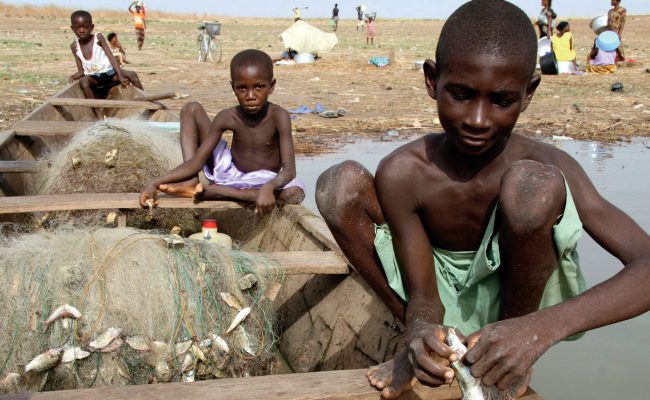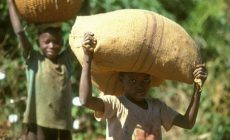Oti Region records the highest number of modern slavery cases
- Posted on
- Comment

The 2021 Population and Housing Census figures disclosed that Oti region is in the lead with the highest number of Child Labour cases with 20.8 per cent cases out of the 16 regions in Ghana.
The North-East Region booked the second position with 11.4 per cent cases, Savannah recording 9.9 per cent cases to secure the third position, Upper West came fourth with 9.3 per cent cases with Greater Accra at the bottom with 0.4 per cent cases.
This was revealed by the Programmes Officer of ActionAid, Jamil Tanimu, at a day’s training workshop for journalists at Kadjebi Akan district of the Oti Region on the fight against modern slavery canker.
The workshop was to equip journalists with relevant information on modern Slavery for easy dissemination to the populace.
According to the ActionAid Programmes Officer, Ghana had been identified as the transit point for modern day slavery, so there was the need to increase sensitisation on the prevalence of the issue through collaboration since it impacted negatively on the country’s development.
Jamil noted that modern day slavery which manifests in the form of commercial sexual exploitation, child labour, trafficking, debt bondage, forced marriage and domestic servitude and forced labour was quite common in the country but unfortunately, received little or no attention.
He, thus, appealed to media practitioners to be agents of change to educate community members on the forms, that constituted modern slavery and factors contributing to it and its effects since ActionAid a lone could not fight modern slavery canker in the country.
Nana Afua Obour and also the coordinator for Network of Community in Development bemoaned the new region recorded the highest proportion of modern slavery with children between the ages of 5-15 who are in economic activities.
She said 23 per cent were in Africa with the highest prevalence rate of 7.6 victims for every 1,000 people and this, she called on the participants to report objectively on the issues and report to the appropriate agencies for action when they observed or see their occurrences.
However, some of the journalists who benefited from the training workshop identified poverty, unemployment, culture, parental neglect, ignorance, among others as some of the factors causing modern-slavery.
They pledged to help change society since the issue of modern slavery was “wickedness” and inhuman which needed to stop with the support of all.
-Adom







 (Selorm) |
(Selorm) |  (Nana Kwesi)
(Nana Kwesi)